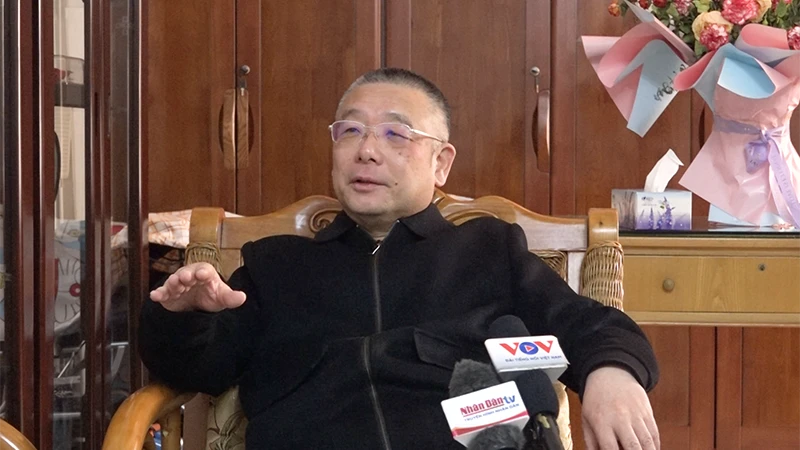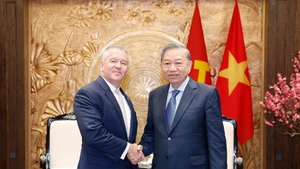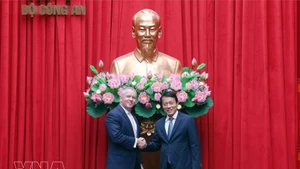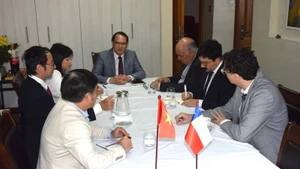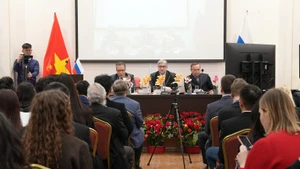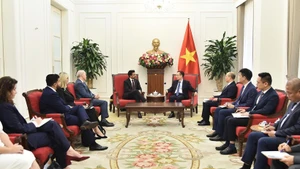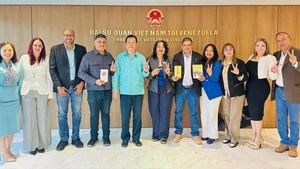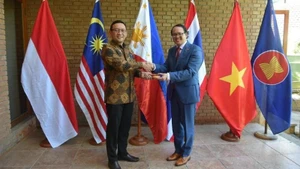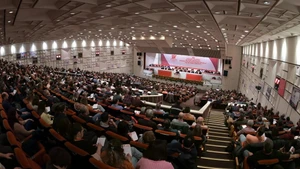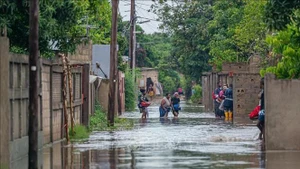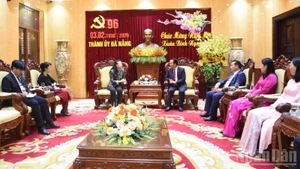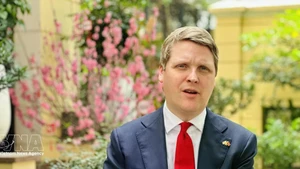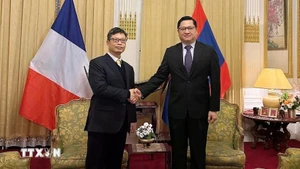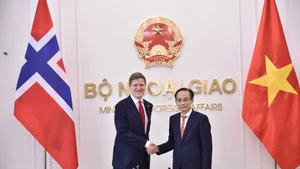Wei Xiaoyi and his mother, Xu Qiqian (over 90), were very moved when they recalled their memories of the Chinese Senior Lieutenant General, who was attached to and devoted much love to Vietnam.
Recalling Senior Lieutenant General Wei Guoqing’s account of the Dien Bien Phu Campaign, Wei Xiaoyi said following the failures in campaigns, such as the Border Campaign and Upper Laos Campaign, France appointed General Henri Navarre as Commander-in-Chief of the French army in Indochina. Navarre developed a military plan named after himself to turn the tide of the Indochina war, with the assumption that by capturing this land, they would be able to control the entire northwest region of Vietnam and cut off communication between the Vietnamese army and people with Laos and China, while making it difficult for the Vietnamese to supply logistics.
In late 1953, the French army began sending garrisons to Dien Bien Phu, including mercenaries and later paratroopers. Faced with that situation, at Vietnam's request, China sent a military advisory delegation to help the Vietnamese army. Senior Lieutenant General Wei Guoqing was the Head of the Chinese military advisory delegation to the Dien Bien Phu Campaign.
Wei Xiaoyi said: “Before leaving for Vietnam, President Mao Zedong met with the delegation’s leaders in Zhongnanhai. He asked the delegation’s members to support the Vietnamese revolution impartially and purely, just like serving the Chinese revolution. My father remembered President Mao Zedong’s notes. After coming to Vietnam, he contributed his opinions to the construction and operations of the Vietnamese army”.
 |
| Wei Xiaoyi and his mother, Xu Qiqian, the spouse of Senior Lieutenant General Wei Guoqing. |
On the 60th anniversary of the Dien Bien Phu Victory, Wei Xiaoyi visited the ancient Dien Bien Phu battlefield. He said he felt all he heard about Dien Bien Phu through the relic sites such as Dien Bien Phu Campaign Headquarters, where General Vo Nguyen Giap and others of the Dien Bien Phu Campaign Command often worked and rested, or the workplace of the Chinese Military Advisory Delegation.
Just like his father, Wei Xiaoyi greatly admired the spirit of heroic fighting and overcoming difficulties and hardships of the Vietnamese army and people, especially the transportation of weapons, ammunition, and food during the Dien Bien Phu Campaign, relied entirely on human strength amid the scarcity and a large difference in force with the enemy.
Regarding the significance of the Dien Bien Phu Victory for Vietnam, China and the world, Wei Xiaoyi said that the victory of the Dien Bien Phu Campaign forced the French army to withdraw from Indochina, leading to the success of the cause of national liberation. The growth and maturity of the Vietnamese, from a guerrilla army gradually becoming a regular army, created the foundation for the struggle against US imperialists’ invasion and later the national liberation and reunification.
For China, in the 1950s, the maintenance of stability in the situation of Korea in North China and Vietnam in South China created favourable conditions for the building of socialism in China. In addition, the Dien Bien Phu Victory also had an impact on the national liberation movement around the world. Vietnam's struggle to defeat the French colonialists and later, the American imperialists to reunify the country was a great encouragement for the national liberation movement in the world.
Senior Lieutenant General Wei Guoqing (September 2, 1913 - June 14, 1989) was Head of the Chinese Military Advisory Delegation in Vietnam; Vice Chairman of the National People's Congress Standing Committee for fourth and fifth tenures; Vice Chairman of the Chinese People's Political Consultative Conference for fourth and fifth tenures; Alternate Member and Member of the 8th Central Committee of the Communist Party of China (CPC); Member of the 9th Central Committee of the CPC; and member of the 10th, 11th and 12th Politburo of the CPC.
Wei Xiaoyi is the second child of Senior Lieutenant General Wei Guoqing. He joined the army and retired. He is now a researcher on Chinese military and revolutionary history.
